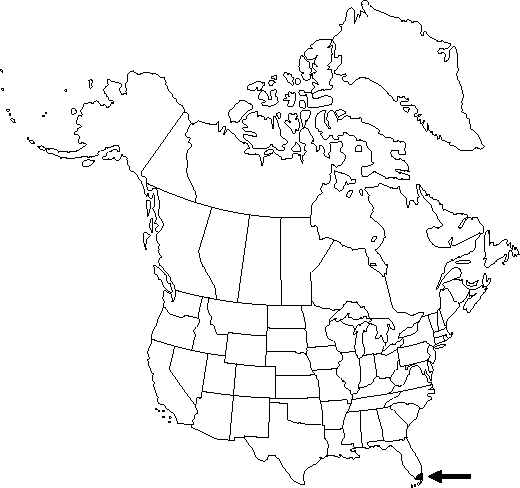Difference between revisions of "Laportea aestuans"
Gard. Bull. Straits Settlem. 21: 200. 1965.
FNA>Volume Importer |
(add possibly to introduced statement to fix Issue #32) |
||
| (7 intermediate revisions by 2 users not shown) | |||
| Line 7: | Line 7: | ||
|year=1965 | |year=1965 | ||
}} | }} | ||
| − | |basionyms={{Treatment/ID/ | + | |special_status={{Treatment/ID/Special_status |
| + | |code=I | ||
| + | |label=Introduced | ||
| + | }} | ||
| + | |basionyms={{Treatment/ID/Basionym | ||
|name=Urtica aestuans | |name=Urtica aestuans | ||
|authority=Linnaeus | |authority=Linnaeus | ||
| + | |rank=species | ||
| + | |publication_title=Sp. Pl. ed. | ||
| + | |publication_place=2, 2: 1397. 1763 | ||
}} | }} | ||
|synonyms= | |synonyms= | ||
| Line 25: | Line 32: | ||
|habitat=Waste places, cultivated ground | |habitat=Waste places, cultivated ground | ||
|elevation=0-10 m | |elevation=0-10 m | ||
| − | |distribution= | + | |distribution=Fla.;Mexico;West Indies;Central America (Costa Rica and Panama). |
| − | |discussion=<p>Plants of Laportea aestuans in the flora have slightly auriculate leaf bases; those from outside the flora area frequently have rounded or truncate leaf bases.</p> | + | |introduced=possibly |
| + | |discussion=<p>Plants of <i>Laportea aestuans</i> in the flora have slightly auriculate leaf bases; those from outside the flora area frequently have rounded or truncate leaf bases.</p> | ||
|tables= | |tables= | ||
|references= | |references= | ||
| Line 35: | Line 43: | ||
-->{{#Taxon: | -->{{#Taxon: | ||
name=Laportea aestuans | name=Laportea aestuans | ||
| − | |||
|authority=(Linnaeus) Chew | |authority=(Linnaeus) Chew | ||
|rank=species | |rank=species | ||
| Line 50: | Line 57: | ||
|publication title=Gard. Bull. Straits Settlem. | |publication title=Gard. Bull. Straits Settlem. | ||
|publication year=1965 | |publication year=1965 | ||
| − | |special status= | + | |special status=Introduced |
| − | |source xml=https:// | + | |source xml=https://bitbucket.org/aafc-mbb/fna-data-curation/src/2e0870ddd59836b60bcf96646a41e87ea5a5943a/coarse_grained_fna_xml/V3/V3_180.xml |
|genus=Laportea | |genus=Laportea | ||
|species=Laportea aestuans | |species=Laportea aestuans | ||
Latest revision as of 16:04, 10 May 2021
Herbs, annual, 1-10 dm, sparsely to densely pubescent with stinging hairs and stipitate-glandular, nonstinging hairs. Leaf blades broadly ovate to nearly orbiculate, 9-20 × 6-16 cm, base rounded or abruptly attenuate, auriculate, margins regularly serrate or dentate, apex short-acuminate. Inflorescences with both staminate and pistillate flowers in same panicle, or proximal panicles with staminate flowers. Staminate flowers ca. 2 mm across; tepals 4-5, equal in length; stamens 4-5, opposite tepals; filaments longer than tepals. Pistillate flowers ca. 0.7 mm; tepals 2-4, appressed, inner pair ca. 1/2 length of ovary; ovary ovoid to ellipsoid; style persistent, hooked and beaklike, ca. 0.2 mm, becoming knoblike in fruit. Achenes strongly compressed, ± orbicular, ca. 0.9 × 1.3 mm.
Phenology: Flowering fall–winter.
Habitat: Waste places, cultivated ground
Elevation: 0-10 m
Distribution

Possibly introduced; Fla., Mexico, West Indies, Central America (Costa Rica and Panama).
Discussion
Plants of Laportea aestuans in the flora have slightly auriculate leaf bases; those from outside the flora area frequently have rounded or truncate leaf bases.
Selected References
None.